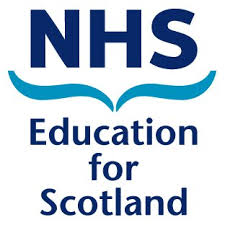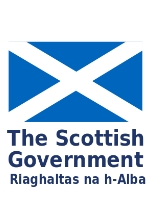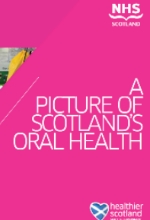
This report is the latest in a series of biennial dental workforce reports that aim to inform workforce planning for dental services in Scotland.
The report is available in full text HTML from NHS Education Scotland. It contains the following sections:
The projected changes in the size and composition of the population are forecast to increase the demand for dental services during the forecast period.
Based on the current number of registered patients per dentist the forecast increase in the demand for dental services increases the demand for dentists.
Based on a series of estimates and assumptions, the supply of dentists is forecast to exceed the number required to maintain current registration rates.
There is considerable uncertainty over the inflows from other, typically non-UK, sources that have an immediate impact on the number of dentists in Scotland.

From 1st April 2016, there is a mandatory training requirement for dentists applying to join the dental list in Scotland:
- for the first time,
- those returning to clinical practice within 5 years, and
- those returning after 5 years or more.
Further details are available are in PCA2016(D)05
The mandatory training programme training will be run by NES and details are available on their website
The Scottish Dental Practice Board was constituted on 1 April 1989, previously, called the Scottish Dental Estimates Board.On 1 April 1993 the Board’s remit became clearly focused on strategic policy issues .
The Board remains statutorily responsible for the fees (but not allowances) authorised to dentists by Practitioner Services.
Visit the Scottish Dental Practice Board Website
The Scottish Dental Reference Service (SDRS) is made up of a small team of independent dentists who help to monitor the standard and quality of NHS dental treatment. The Scottish Dental Reference Service (SDRS) is part of Practitioner Services.
Visit the SDRS webpage
Practitioner services is part of NHS National Services Scotland (NSS) . It provides patient focused services such as the transfer of medical records between General Practitioner (GP) practices, assisting patients to access GP and dental practices, as well as assisting practitioners to maintain accurate and up-to-date patient registers. We also have a Clinical Governance role with regard to dental services to make sure services are delivered to high professional standards.
Visit the Dental page of Practitioner Services
NHS National Services Scotland (NSS) provides national strategic support services and expert advice to NHS Scotland NSS plays an active and crucial role in the delivery of effective healthcare to patients and the public . NSS works closely with its partner organisations, especially the NHS Boards, in the delivery of their services. Ii has two broad areas of activity , health support and business support.
Health Support
Business Support
Visit the NSS website
The National Institute for Health and Care Excellence (NICE) provides national guidance and advice to improve health and social care. NICE guidance is only officially for England only but some products and services are provided to Wales, Scotland and Northern Ireland. The decisions on how NICE guidance applies is made by the devolved administrations.
NICE was originally established in 1999 as the the National Institute for Clinical Excellence, a special health authority, to reduce variation in the availability and quality of NHS treatments and care. In 2005 it merged with the Health Development Agency and began developing public health guidance and its name changed to the National Institute for Health and Clinical Excellence.
In April 2013 NICE was established in primary legislation, becoming a Non Departmental Public Body (NDPB) providing a a solid statutory footing as set out in the Health and Social Care Act 2012. NICE then took on responsibility for developing guidance and quality standards in social care.
Visit the NICE website
The Scottish Intercollegiate Guidelines Network (SIGN) was formed in 1993. Its objective is to improve the quality of health care for patients in Scotland by reducing variation in practice and outcome, through the development and dissemination of national clinical guidelines containing recommendations for effective practice based on current evidence.
In January 2005 SIGN became part of NHS Quality Improvement Scotland (NHS QIS) and on 1st April 2011 part of Healthcare Improvement Scotland .
Visit the SIGN website
Healthcare Improvement Scotland (HIS) are the national healthcare improvement organisation for Scotland and part of NHS Scotland. The work programme supports the healthcare priorities of the Scottish Government, in particular those of NHS Scotland’s Healthcare Quality Strategy and the 2020 Vision. His helps driveimprovements in the quality of healthcare people receive by:
- supporting and empowering people to have an informed voice in managing their own care and shaping how services are designed and delivered
- delivering scrutiny activity which is fair but challenging and leads to improvements for patients
- providing quality improvement support to healthcare providers, and
- providing clinical standards, guidelines and advice based upon the best available evidence.
Visit the HIS website
NHS Health Scotland is a national Health Board working with public, private and third sectors to reduce health inequalities and improve health.
Visit the Health Scotland website
The Scottish Public Health Observatory (ScotPHO) collaboration is co-led by ISD Scotland and NHS Health Scotland, and includes the Glasgow Centre for Population Health, National Records of Scotland and Health Protection Scotland. The aim is to provide a clear picture of the health of the Scottish population and the factors that affect it.
Visit the ScotPHO website
The Scottish Dental Practice Board was constituted on 1 April 1989, previously, called the Scottish Dental Estimates Board.
The Board’s remit covers: – Payments to Dentists – Clinical Policy on Treatment and Appliances – Monitoring of GDS – Quality of GDS Provisions.
Visits Scottish Dental Practice Board website

The Scottish Dental Clinical Effectiveness Programme (SDCEP) is an initiative of the National Dental Advisory Committee (NDAC) in partnership with NHS Education for Scotland (NES). SDCEP is funded by the Scottish Government Health Directorates and contributes to NES’s role in implementing the Scottish Government’s Dental Action Plan.
SDCEP have produced a number of evidence-based guidance documents since they were established. This includes
- Conscious Sedation
- Decontamination – Cleaning of Dental Instruments
- Decontamination – Sterilization of Dental Instruments
- Dental Caries in Children
- Drug Prescribing (Second Edition)
- Emergency Dental Care
- Management of Acute Dental Problems
- Oral Health Assessment and Review
- Oral Health Management of Patients Prescribed
- Bisphosphonates
- Practice Support Manual (10 topics)
- Prevention and Treatment of Periodontal Diseases in Primary Care
Go to SDCEP website for further information
The Managed Clinical Network (MCN) for Orthodontics within Tayside is a linked groups of health professionals from primary and secondary care, working in a co-ordinated manner to ensure equitable provision of high quality clinically effective Orthodontic services throughout Tayside. The MCN was established in 2005.
The website has guidelines, reports, service information, patient information and lists of practitioners for Tayside.
Visit website

The Report compiles a comprehensive picture of the state of oral health and other issues relevant to dentistry in Scotland. Particular highlights include the record numbers of people (adults and children) currently registered with a NHS dentist in Scotland, and the substantial improvements that have been made in child oral health. The Report also considers some of the challenges for the future such as breaking the link between deprivation and poor dental health, oral cancer rates amongst adults and the oral health needs of vulnerable groups such as the elderly and homeless people. The Report reviews specific targeted programmes of intervention such as the Childsmile Programme, which has a particular focus on improving children’s oral health through a combination of health promotion and the early identification and management of oral disease.
Introduction, Symptoms of tooth decay, Causes of tooth decay, Diagnosing tooth decay, Treating tooth decay, Complications of tooth decay, Preventing tooth decay.




